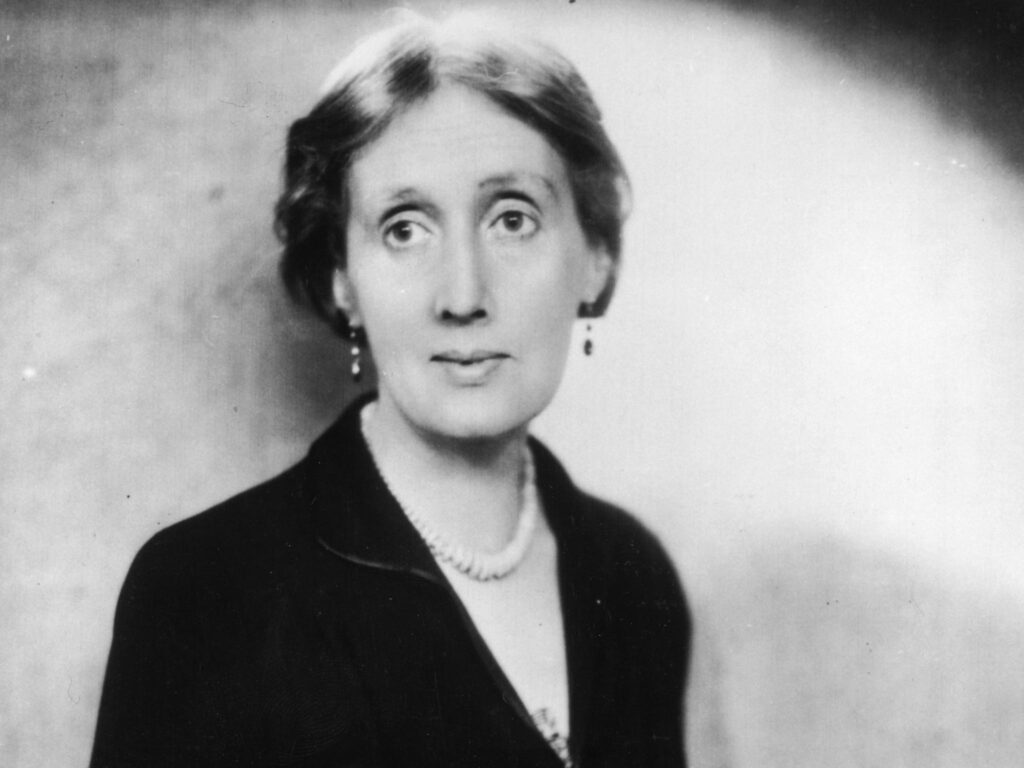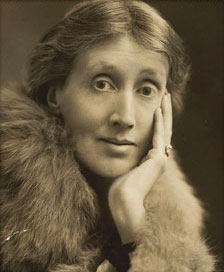Three Essays on Dostoyevsky by Virginia Woolf

Contents
Dostoevsky the Father
More Dostoevsky
Dostoevsky in Cranford
Dostoevsky the Father
It would be a mistake to read this book as if it were a biography. Mlle Dostoevsky expressly calls it a study, and to this the reader must add that it is a study by a daughter. The letters, the facts, the testimonies of friends, even to a great extent the dates which support the orthodox biography are here absent or are introduced as they happen to suit the writer’s purpose.
And what is a daughter’s purpose in writing a study of her father? We need not judge her very severely if she wishes us to see him as she saw him – upright, affectionate, infallible, or, if he had his failings, she is to be excused if she represents them as the foibles of greatness. He was extravagant perhaps. He gambled sometimes. There were seasons when, misled by the wiles of women, he strayed from the paths of virtue.
We can make allowance for these filial euphemisms; and if we come to feel, as this book makes us feel, that the daughter was fond as well as proud of her father, that is a real addition to our knowledge. At the same time we should have listened more sympathetically if Mile Dostoevsky had suppressed her version of the quarrel between Dostoevsky and Turgenev. To make out that your father is a hero is one thing; to insist that his enemies are villains is another.
Yet she must have it that all the blame was on Turgenev’s side; that he was jealous, a snob, ‘even more cruel and malicious than the others’. She neglects the testimony supplied by Turgenev’s own works, and, what is more serious, makes no mention of the evidence on the other side which must be known to her. The effect is naturally to make the reader scrutinize Dostoevsky’s character more closely than he would otherwise have done.
He asks himself inevitably what there was in the man to cause this shrill and excited partisanship on the part of his daughter. The search for an answer among the baffling yet illuminating materials which Mlle Dostoevsky supplies is the true interest of this book.
If we were to be guided by her we should base our inquiry upon the fact that Dostoevsky was of Lithuanian descent on his father’s side. Mlle Dostoevsky has read Gobineau, and shows a perverse ingenuity and considerable industry in attributing almost every mental and moral characteristic to race heredity. Dostoevsky was a Lithuanian and thus loved purity; he was a Lithuanian and thus paid his brother’s debts; he was a Lithuanian and thus wrote bad Russian; he was a Lithuanian and thus a devout Catholic. When he complained that he had a strange and evil character he did not realize that it was neither strange nor evil, but simply Lithuanian.
As Dostoevsky himself never attached much importance to his descent, we may be allowed to follow his example. We shall not come much closer to him by pursuing that track. But Mlle Dostoevsky increases our knowledge by more indirect methods. A clever little girl cannot run about her father’s house without picking up many things which she is not expected to know. She knows whether the cook is grumbling; which of the guests bores her parents; whether her father is in a good temper, or whether there has been some mysterious grown-up catastrophe.
Considering that Aimée was very young when her father died, she could scarcely be expected to observe anything of much greater importance than this. But then she is a Russian. She has that apparently involuntary candour which must make family life so disconcerting in Russia. Her father’s greatness subdues her to a dutiful attitude, which, if reverent, is also a little colourless. But no one else has that power over her. ‘Her self-esteem was always excessive, almost morbid; a trifle would offend her, and she easily fell a victim to those who flattered her.’ Thus she describes her mother, and her mother is still alive.
As for her uncles and aunts, her step-brother, her father’s first wife, his mistress, she is completely outspoken about them all and – were it not that she qualifies her blame by detecting strains of Slav, Norman, Ukrainian, Negro, Mongol, and Swedish blood – equally severe.
That, indeed, is her contribution to our knowledge of Dostoevsky. No doubt she exaggerates; but there can also be no doubt that her bitterness is the legacy of old family quarrels – sordid, degrading, patched-up, but bursting out afresh and pursuing Dostoevsky to the verge of his death-chamber. The pages seem to ring with scoldings and complainings and recriminations; with demands for more money and with replies that all the money has been spent. Such, or something like it, we conclude, was the atmosphere in which Dostoevsky wrote his books.
His father was a doctor who had to resign his appointment owing to drunkenness; and it was on account of his drunken savagery that his serfs smothered him one day beneath the cushions of his carriage as he was driving on his estate. The disease was inherited by his children. Two of Dostoevsky’s brothers were drunkards; his sister was miserly to the verge of insanity, and was also murdered for her money. Her son was ‘so stupid that his folly verged on idiocy.
My uncle An drey’s son, a young and brilliant savant, died of creeping paralysis. The whole Dostoevsky family suffered from neurasthenia.’ And to the family eccentricity one must add what appears to the English reader the national eccentricity – the likelihood, that is to say, that if Dostoevsky escapes death on the scaffold and survives imprisonment in Siberia he will marry a wife who has a handsome young tutor for her lover, and will take for his mistress a girl who arrives at his bedside at seven in the morning brandishing an enormous knife with which she proposes to kill a Frenchman.
Dostoevsky dissuades her, and off they go to Wiesbaden where ‘my father played roulette with passionate absorption, was delighted when he won, and experienced a despair hardly less delicious when he lost’. It is all violent and extreme, later, even, when Dostoevsky was happily married, there was still a worthless stepson who expected to be supported; still the brothers’ debts to pay; still the sisters trying to make mischief between him and his wife; and then the rich aunt Kumanin must needs die and leave her property to stir up the last flames of hatred among the embittered relations. ‘Dostoevsky lost patience and, refusing to continue the painful discussion, left the table before the meal was finished.’ Three days later he was dead. One thinks of Farringford flourishing not so very far away. One wonders what Matthew Arnold, who deplored the irregularities of the Shelley set, would have said to this one.
And yet, has it anything to do with Dostoevsky? One feels rather as if one had been admitted to the kitchen where the cook is smashing the china, or to the drawing-room where the relations are gossiping in corners, while Dostoevsky sits upstairs alone in his study. He had, it is clear, an extraordinary power of absenting his mind from his body.
The money troubles alone, one would think, were enough to drive him distracted. On the contrary, it was his wife who worried, and it was Dostoevsky, says his daughter, who remained serene, saying, ‘in tones of conviction, “We shall never be without money.” ‘ We catch sight of his body plainly enough, but it is rather as if we passed him taking his afternoon walk, always at four o’clock, always along the same road, so absorbed in his own thoughts that ‘he never recognized the acquaintance he met on the way’. They travelled in Italy, visited the galleries, strolled in the Boboli gardens, and ‘the roses blooming there struck their Northern imaginations’.
But after working at The Idiot’ all the morning how much did he see of the roses in the afternoon? It is the waste of his day that is gathered up and given us in place of his life. But now and then, when Mlle Dostoevsky forgets the political rancours of the moment and the complex effect of the Norman strain upon the Lithuanian temperament, she opens the study door and lets us see her father as she saw him. He could not write if he had a spot of candle-grease on his coat.
He liked dried figs and kept a box of them in a cupboard from which he helped his children. He liked eau-de-Cologne to wash with. He liked little girls to wear pale green. He would dance with them and read aloud Dickens and Scott. But he never spoke to them about his own childhood. She thinks that he dreaded discovering signs of his father’s vices in himself; and she believes that he ‘wished intensely to be like others’. At any rate, it was the greatest pleasure of her day to be allowed to breakfast with him and to talk to him about books. And then it is all over. There is her father laid out in his evening dress in his coffin; a painter is sketching him; grand dukes and peasants crowd the staircase; while she and her brother distribute flowers to unknown people and enjoy very much the drive to the cemetery.
More Dostoevsky
Each time that Mrs Garnett adds another red volume to her admirable translations of the works of Dostoevsky we feel a little better able to measure what the existence of this great genius who is beginning
